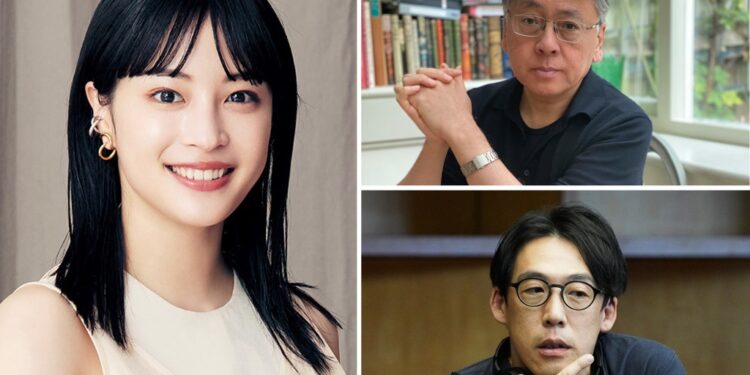Nobel Prize winner Kazuo Ishiguro‘s A Pale View of Hills will be distributed by GAGA Corporation and produced by Japan‘s Bunbuku and the U.K.’s Number 9 Films.
Set to be released in Japan in summer 2025 and already in production, A Pale View of Hills is exec-produced by Ishiguro and directed by Kei Ishikawa. Ishikawa directed Gukoroku: Traces of Sin and A Man, which both premiered in the Venice Film Festival. U-Next’s Hiroyuki Ishiguro will lead the producing team of the film.
A Pale View of Hills is Ishiguro’s debut novel, with his other works like Remains of the Day and Never Let Me Go already adapted for the screen.
Suzu Hirose from Hirokazu Kore-eda’s Our Little Sister and The Third Murder will star in the film.
A Pale View of Hills is a mystery drama that traces the unraveling of a Japanese widow’s secret memories that cross over between post-war Nagasaki, Japan in the 1950s and England in the 1980s.
Japan’s Bunbuku is behind Kore-eda’s Monster, which won Best Screenplay at Cannes. The U.K.’s Number 9 Films has produced titles like Living and Carol. Ishiguro penned the screenplay for Living, which he received an Oscar nomination for Best Adapted Screenplay.
Ishiguro, originally born in Nagasaki, moved to England with his parents at the age of five and received the Winifred Holtby Memorial Prize in 1982 for his debut novel.
“I’m a great admirer of Ishikawa-san’s previous movie, A Man, and I’ve been very excited from the first day he expressed his wish to adapt my novel, A Pale View of Hills,” Ishiguro said. “He has a masterly command over the language of cinema and draws superbly nuanced performances from his actors. His fine screenplay, which I’ve read with fascination, is mysterious and moving.
“The story itself concerns the yearnings, hopes and fears of the generation that emerged in a rapidly changing Japan after the horrors of World War Two and the atomic bombings. How appropriate, then, that our movie will be released as we mark the 80th anniversary of the end of those terrible events whose shadows continue to fall over us all today,” he added.
Ishikawa said: “I still cannot believe that we are making a film based on this special story by our own hands. What gave me the courage to face this great novel was the words of the author Kazuo-san, who said, ‘I always believed that this story should be made into a film by the younger generation in Japan.’”
U-Next’s Hiroyuki Ishiguro added: “Ever since I discovered this novel in London, it has been my dream to adapt it into a feature film as a Japanese-British co-production. During the development of this project, we experienced the pandemic, and now conflicts persist in different places of the world. As we face rapid changes in this world where lifestyles and values are constantly shifting, and the future remains uncertain, I find great significance in bringing this deeply personal story to follow one woman’s memory, set in 1950s Japan and 1980s England — two eras that also underwent paradigm shifts — to a global audience as a narrative with universal themes related to the present.”







